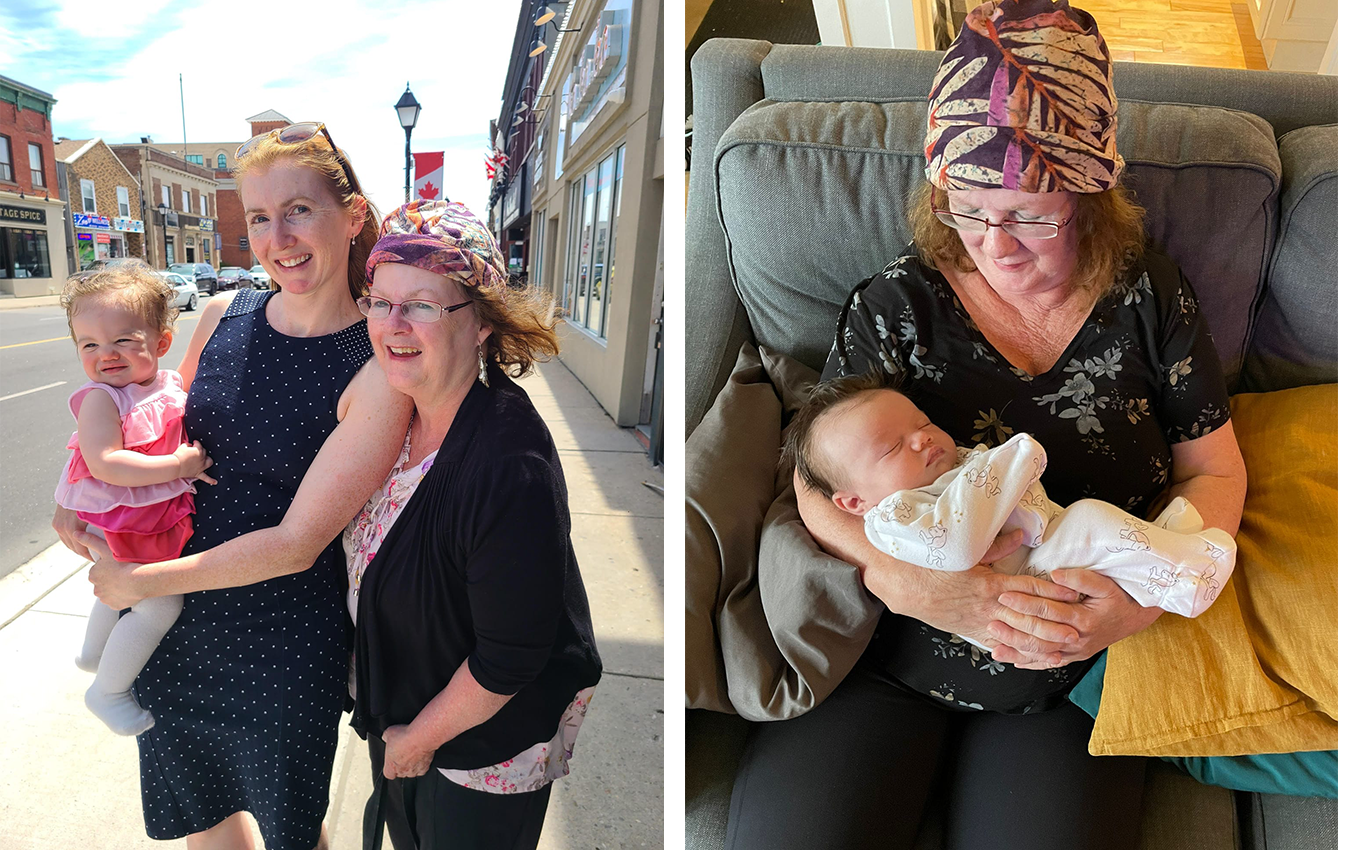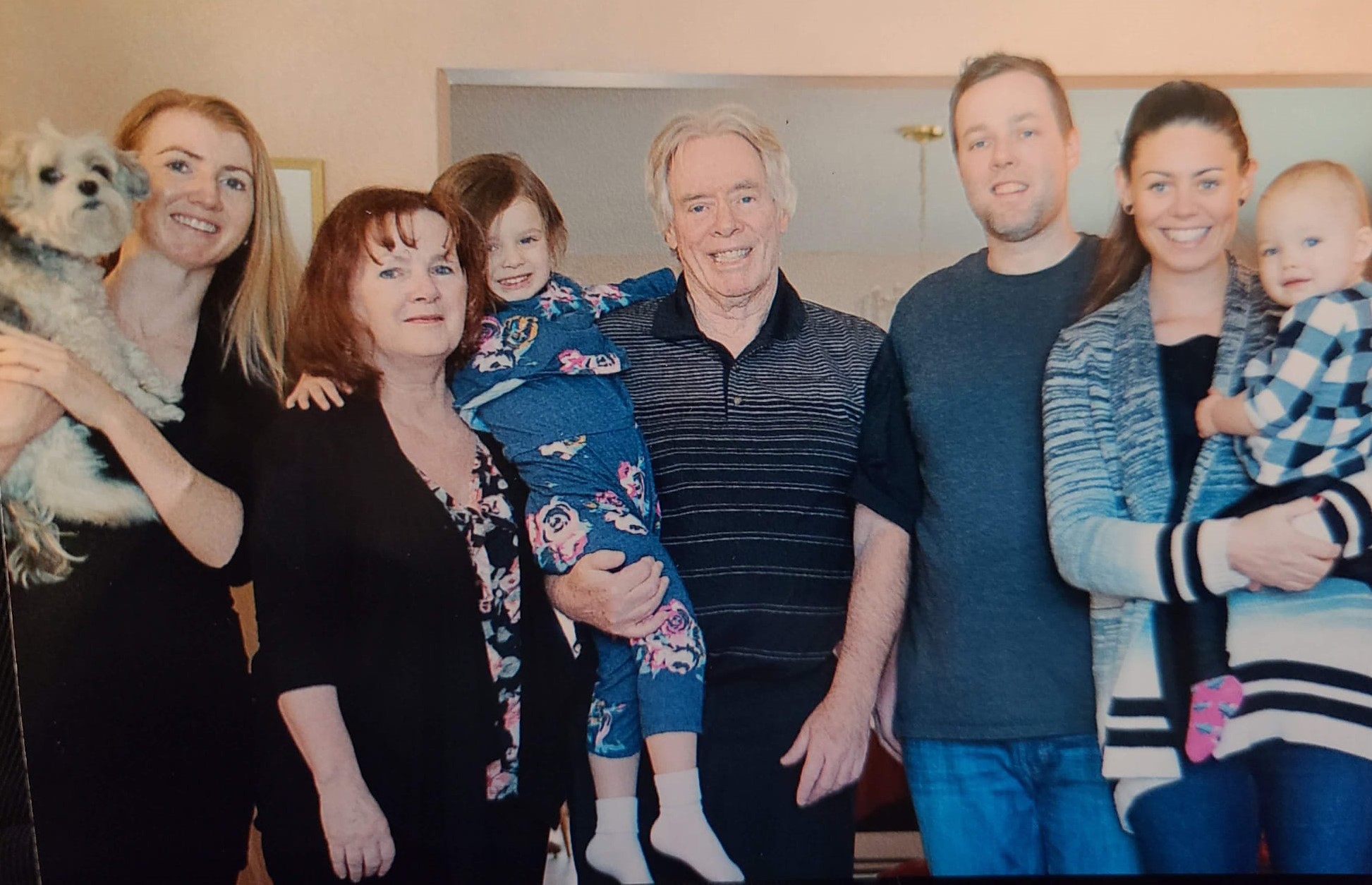
A Remarkable Life
Jane McNulty-Smith lived a content and blissfully “normal” life in Newmarket, Ont., where she raised two kids, Darryl and Pamela, with her husband, Steve, and worked as a transcriber in the diagnostic imaging department of the local hospital.
That would change when she received her own diagnosis of glioblastoma, the most common and most aggressive malignant primary brain tumour. While Jane’s daughter, Pamela, doesn’t remember much of that time given she was only 12 when her mom was diagnosed, she does recall her mom’s determination to beat the disease.
“My mom was just really remarkable, going through surgery and radiation, and then focusing as much as she could on her health afterwards,” Pamela says. “She started a regimen of healthy eating. She would do juicing. She saw a naturopath.”
“I think my parents tried to shield me and my brother from some of the scariness of getting a brain tumour diagnosis because the outcome is not always positive.”
Jane’s doctors predicted she would only live a year following her diagnosis, but she lived an incredible 26 years instead.
“She was cancer free after her surgery and radiation,” says Jane. “She would have follow-ups every six months, and then every year, and then every few years after that.”
Focusing on what matters
 As her doctors had warned her that the chances of her tumour recurring were somewhat high, Jane decided to stop working and continue focusing on her health—and, of course, her family.
As her doctors had warned her that the chances of her tumour recurring were somewhat high, Jane decided to stop working and continue focusing on her health—and, of course, her family.
Jane was one of six siblings, a tight-knit group that was always there for one another. She would often host Christmas and other holiday dinners at home, Pamela recalls, indulging her homebody side but also enjoying family time.
She was also very involved in the lives of her children, Pamela says, always putting family first.
“My mom was at home and was able to do a lot of things with us, so we didn’t think much of her diagnosis at that point,” Pamela says. “Her scans were all fine. We knew we were lucky to have her around, but we had a very normal upbringing.”
Jane cherished her role of grandmother, too, when her kids eventually welcomed their own daughters. She would often babysit Darryl’s two girls, though her health had taken a turn by the time Pamela had her daughter.
Recurring symptoms
She’d started experiencing seizures, which became more frequent over time. With the seizures came memory loss and confusion, as well as a loss of mobility.
“Her gait was different,” Pamela says. “She was still really functional, but you could see she was declining.”
Pamela says her mom’s decline was attributed to her radiation treatments, which aimed to give her a chance at short-term survival.
“Her neurologist didn’t give us a positive outcome,” Pamela says. “He said that she’s going to continue to decline, which was hard to believe because she was doing so well. She would have an episode, but then she would recover and be fine.”
Spreading hope
 Jane sadly passed away in January 2024.
Jane sadly passed away in January 2024.
“I’d like her to be remembered as a survivor and as a kind person doing what she could to help others.”
Jane gave her all to her family, though she also spent her time volunteering at her local hospital and hospices.
“She would often talk to people who had the same type of brain tumour she was diagnosed with,” says Pamela. “It was important to her to share her experience and to let people know that you can live long after a diagnosis—that there is hope.”